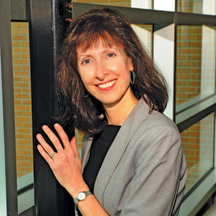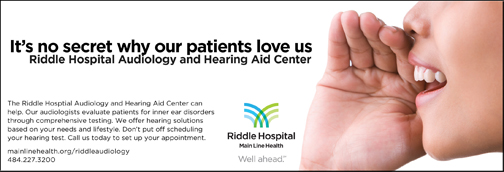Hear Well Again

Director/Doctor of Audiology
How does the ear work?
Hearing noises around us and understanding the subtle sounds of human speech are things we often take for granted. In reality, the auditory system–our mechanism for hearing–is extremely complex, involving many intricate components, not simply the outer ear, which is the only visible part.
The outer ear (pinna) acts like a funnel, directing sounds into the ear canal and toward the eardrum (tympanic membrane). Speech and environmental sounds displace the tympanic membrane, causing the ossicles (small bones of the middle ear) to vibrate. This in turn, transmits the acoustic signal into the fluid-filled cochlea, which is the nerve center of hearing. Once the nerve cells of the inner ear have been stimulated, electrical signals pass up the cochlear nerve on their way to an amazing network of nerve fibers and through auditory pathways eventually leading to the cerebral cortex in the temporal lobes of the brain.
The auditory system is a finely tuned organ, which is able to sense very soft sounds and discern slight differences in speech so that we can discriminate between consonants and vowels, regional dialects and foreign languages. It is only when things go wrong that we realize how much we depend on the sense of hearing and how negatively quality of life can be affected.
What causes loss of hearing? And what are the signs?
Hearing loss can be attributed to many things. Some hearing losses are conductive, and are caused by a blockage in the ear, such as excessive earwax or swimmers’ ear; this type of hearing loss is usually correctible and can be managed by a physician. Other hearing losses are sensorineural, which are generally permanent and may result from frequent noise exposure, ear disease, heredity and aging.
For most people, hearing changes very gradually, so when conversation becomes muffled and soft sounds in the environment disappear, life becomes frustrating and often a struggle. Most commonly reported listening challenges include conversing in noisy restaurants, avoiding social situations, unclear phone calls, not hearing birds chirp and being told that the TV volume is ‘too loud’!
Hearing loss affects speech understanding
Because vowel sounds are low pitched, and consonants are high pitched, hearing loss in one or more frequency ranges can make if difficult to hear and understand what people are saying. An audiogram is a graphic display of your ability to perceive different frequencies (pitches) at soft intensity levels (decibels). This test provides the best representation of your ability to hear in each ear. An audiologist is a healthcare professional, uniquely qualified to provide hearing testing and appropriate hearing solutions as needed
Following a thorough evaluation, an audiologist will review the type and degree of hearing loss, discuss eligibility for amplification, determine your specific listening needs and what technologies can best meet those needs and explore the many hearing instrument options and styles that are available. As well, an audiologist will provide an individualized demonstration of the latest digital hearing aid technology so you can experience an immediate improvement in hearing ability.
Hearing aids can improve the quality of your life
Our goal at Riddle Hospital is to provide a comprehensive and superior patient care experience in a safe and welcoming environment. We understand the social, emotional and psychological concerns that accompany hearing loss. Together, we will discuss how combining lifestyle needs and advanced technology can positively result in better hearing. The process should be comfortable, safe and leave you feeling well-informed with a plan that meets your individual needs and goals.
For more information or to schedule an evaluation or treatment, contact the Audiology Department at Riddle Hospital.
Barbara J. Madden, Au.D.
Doctor of Audiology/Director
Catherine M. Marino, Au.D.
Doctor of Audiology
Denise E. Stewart, M.S.
Clinical Audiologist
Lisa C. Mackenzie, M.S.
Clinical Audiologist
RIDDLE HOSPITAL
Audiology &
Hearing Aid Center
1118 West Baltimore Pike
Suite 207
Media, PA 19063
(484) 227-3200-phone
(484) 227-3265-fax


